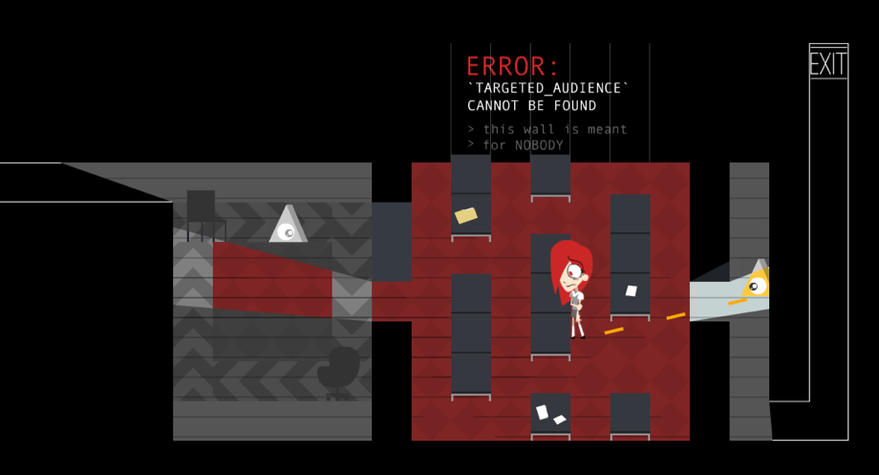The post-privacy sim Nothing to Hide gets more timely every day

“Kanye West is worried a drone will electrocute his daughter” and “Kanye West: I fear electrocution by drone” are wonderful headlines. They’re exactly the sort of thing we expect from the rapper—sensational, emotional, Tweet-able. The truth, though, is a little more complicated. Our increasing adoption of drones, and their increasing ubiquity, is cause for a sensible person’s concern. What would happen if a poorly operated one fell into a swimming pool or onto a highway? It’s not just that they exist increasing numbers; it’s that they exist with increasing familiarity.
That’s what makes Team Nobody’s game Nothing to Hide so poignant. The greatest threat to our personal privacy is not trench-coated strongmen who bust down our doors but instead small little plastic devices that we carry with us. Devices that in some cases actually beg for us to interact with them.
“It’s not partaking in your own surveillance, it’s just…taking an infinite selfie.”
Nothing to Hide, which will be out in alpha on October 1st, asks that you do almost nothing you aren’t already doing. It asks that you stay in sight and constantly telegraph your location, image, and doings to all those around you. “It’s not partaking in your own surveillance, it’s just…taking an infinite selfie,” says creator Nicky Case. It’s not a game about a nightmare future—it’s about our nightmare present.
We’ve been following Nothing to Hide for awhile. In it, you play as Poppy Gardner, a girl who must always remain in the view of the camera in an anti-stealth puzzle game. New art shows that the cameras, called iEyes, are no longer of the masonic all-seeing variety but now are even more pointedly black rectangles with eyes. The new eyes are a subtle touch, but also one that breaks down the wall between our world and Poppy’s.
But what at first seemed like a puzzle game that critiqued our rampant self surveillance will also have “all sorts of personal relationships,” Case says. “I’m going to break every single one of them.” The game will also include free roaming sections where the Poppy will be allowed outside of the camera’s gaze, and she’ll be free to be expressive and explore.

The game grows more timely by the day. When a Russian crime ring created the largest data breach in the history of the internet by stealing 1.2 billion internet credentials, many of us quickly scrambled to change them. Data theft is only getting worse: IBM and the Ponemon Institute released study in May that says that the loss of data has cost companies 15% more this year than last year. But data theft doesn’t have to be as outlandish as a “Russian crime ring” or an army of hackers. In 2008 Sarah Palin’s personal Yahoo email account was “hacked” by a 20-year-old who needed only the help of Wikipedia to discover the answers to Palin’s password and reset security questions—her birthdate, ZIP code, and where she met her husband. The same could be done with craftful googling of any of us.
Which is what makes Nothing to Hide so sinister and so salient: we’re doing this to ourselves. There will always be Russian boogeymen out there to steal our data, but we’re also just giving it away to anyone who walks past us on the streets of the internet. “Without privacy, we burn,” Case says. “We’re constantly exposed. Like a caterpillar frying in the sun, writhing, screaming, still dreaming it’ll be a butterfly someday…”



